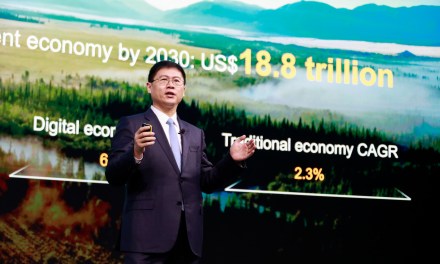Viewpoint
In part two of my interview with Cormac Whelan, CEO for the UK and Ireland at Nokia, we discuss the UK’s FTTH rollout plans, with Whelan saying that the country’s 7 per cent fibre penetration levels are frankly “shocking”
The UK is starting from quite a modest start point on the fibre to the home (FTTH) front but over the past twelve months we have seen a sevenfold increase in the number of homes and businesses passed. Is the country doing enough or does it still need to pick up the pace?
“I think the word ‘modest’ as a starting point would be considered quite an understatement. If you look at what has happened in the rest of the world – even in the rest of Europe – you’ve got Spain and Portugal who are at over 99 per cent penetration, or availability I should say (of course that depends on consumer uptake).
“Also some of the younger countries in the European Union, some of the Eastern European players, are way ahead, simply because they haven’t got 100 years of legacy infrastructure to protect or worry about. So, they have made a really quick leap.
“If you look at countries like Germany and Ireland and the UK [countries with established, copper, legacy networks], their fibre penetration levels are very low. The latest figures I had showed fibre penetration levels at just below 5 per cent, but really it doesn’t matter if it’s 5 per cent, 6 per cent or 7 per cent, you are still talking about single digit percentage levels for fibre to the home services. For a modern western society, where the future is built on fibre, that is shocking.
“If you look at the amount of business cases and investment that is now committed to the UK fibre business, we alone have in excess of 8 or 9 bids with various different companies, all of whom have fibre rollout plans that are very aggressive both in terms of financial commitment and scale of homes passed within a specific time frame.
“They are all very ambitious plans and I would be amazed if they all manage to be as successful as they hope to be, simply because, while there are some mutually exclusive areas -people focussing on rural areas only, others focussing on small towns only – there is inevitably overlap in some of these business models.
“Therefore, some of them are going to suffer in terms of uptake. Some of the players have more products to offer – if you are BT or Sky you have a whole range of content to offer as part of a package, whereas if you are a fibre only player, are you playing in wholesale or retail?
“There are a number of things left to flesh out, but I think that the pace of investment and the pace of rollout is ramping up at a speed that I haven’t seen in another technology for the last couple of decades.
“It’s going to be interesting to see how it all plays out, but I think that we are inevitably going to see some degree of convergence of these suppliers over the next two to three years.”
One question I like to ask a lot is: Are there enough people in white vans who are going to be able to dig out and install these fibre programmes? You need an army of people to rollout new fibre. We are not talking about doing it over existing infrastructure or replacing a few cabinets here and there. We are talking about physically digging trenches and installing a lot of poles and wires. The manpower is just as much of a factor as the actual technology itself. There is also the question of where does that leave the power lying in the supply chain?
It’s going to be a very interesting supply chain. BT are looking to hire thousands of new people to come and help roll it all out, which means the other eight or nine companies that are wanting to play in this arena are going to have to do the same thing.
Is Brexit going to be a factor in the country’s ability to get the job done?
“That question has been around for a few years and rightly so! Two years ago, this was a genuine concern. I raised it a number of times because there was a lot of European imported labour in the UK doing the manual labour jobs. The Brexit situation introduced a lot of uncertainty into the situation and some of them went home. At the time, we had much less clarity on what it meant for the ‘people agenda’. I think now we are seeing less concern over the restriction of movement of people. We now know what it will take, visa wise, permission wise, to get the people we need.
“If there are jobs here then great but remember that there are other countries doing exactly the same as the UK at the moment. We are rolling out a national broadband network in Poland that requires thousands of people to roll it out. The same thing is going on in Hungary, Italy and Greece. Even in Germany. So, there are loads of countries who are at that heightened stage of execution right now.
“So, it’s not just a question of can the people come here, it’s a question of will they choose to come here, or are there better opportunities elsewhere?”
What do you hope to achieve at Connected Britain 2019
“Connected Britain is a fantastic platform and it has gone from strength to strength, particularly in the last 3-4 years. With the Brexit situation and the Huawei storm, there happen to be a lot of perfect storms going on [in the UK’s connectivity sector], but this just reflects the fact that Connected Britain is the platform for us to have those type of dates.
“When you look at the calibre of speakers they have got, from the industry, from technologists, from local government, it’s the number one forum in the UK for this industry. From that point of view, its fantastic for the industry and for the country.
“It’s also done a fantastic job of turning what happens at the event itself to the outside world. It creates further debate, far beyond what we are all discussing during the two days that we are attending the conference. That’s the important thing – because ultimately a load of industry executives discussing the state of the industry is fine, but actually it needs to generate debate and education outside of the room – separating hype from reality. If we don’t do that, then the industry is just talking to itself and we need to do more than that”.
















